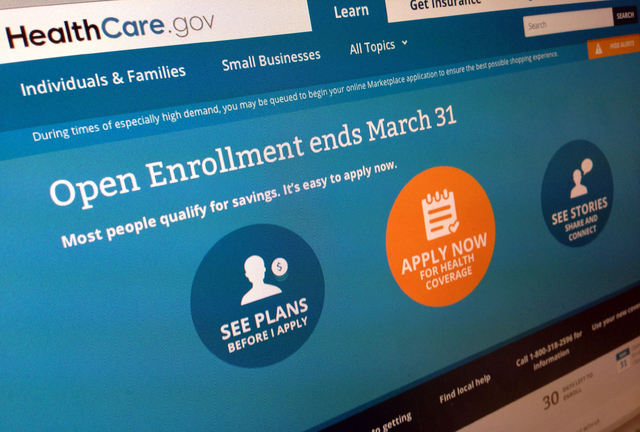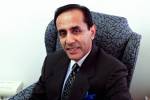Solve emergency first, then resolve money, doctor says
There has to be a faster way for ill patients ensnared in coverage problems through Nevada Health Link to get help.
And one local doctor said he has the answer.
Dr. Len Kreisler, a family practitioner and former chief of staff at University Medical Center, took a special interest in the case of LaTrina Reed, the Las Vegas woman who couldn’t get a hysterectomy for six months because of problems with her Nevada Health Link insurance plan. Reed’s procedure would cost $30,000, and no one would handle it until she had her coverage worked out.
After the Las Vegas Review-Journal wrote about Reed on Aug. 14, Kreisler emailed to tell us we “failed to ask the cardinal question.”
“Why didn’t the physicians, clinic and hospitals take care of the medical emergency first and worry about the money later on? That is what Hippocrates was all about,” Kreisler wrote. “It is not only the moral-ethical thing to do, it is the medical mandate and, in my mind, borders on medical malpractice to not do it. In this case, in particular, she had the evidence of payments, and there is no question that the insurance would eventually have to pay it, and with the right attorneys, they could have added punitive as well as other damages. My colleagues in the county and state (medical) societies may (make) grandiose statements, but where are their voices on this issue?”
We actually get this kind of comment a lot — pretty much every time we write about someone who couldn’t get in to see the doctor without insurance.
So we ran the question by Dr. Howard Baron, a local pediatric gastroenterologist and a past president of the Clark County Medical Society. Baron’s response: It’s not so simple for docs to give care gratis any time a patient can’t pay.
For one thing, doctors need to make a living, like anyone else, and it’s harder than ever to do that given the way reimbursements work today.
“People have this inaccurate idea that physicians work on a humongous margin, that we have all of this cash stacked somewhere and that we can afford to eat the cost of medical care if it gets to be too much for patients,” Baron said. “Most of us are making ends meet month to month, and we can’t afford to do that.”
Take a hospital surgery on a child’s perforated appendix. The operation, plus 10 days of post-op follow-up, will run $15,000 to $20,000. Baron said his share of that fee might be just $300.
That’s partly because so many other people work on a patient — another reason it’s impractical to give away medical services. It’s not just the surgeon who provides care. There are also anesthesiologists, medical technicians and nurses — all of whom need to get paid. There are hospital and equipment fees, too.
What’s more, doctors do offer free care every day, Baron said. Every time they set foot in a hospital, they’re working without pay until they submit a bill to the patient or insurer. Then they cross their fingers and hope someone will pony up.
Baron estimated that 80 percent of his practice’s noncollectable fees come from hospital patients who never paid their tab.
Then there’s the voluntary free care many practices already provide.
The Children’s Heart Center, for example, has a nonprofit foundation that covers uncompensated care for kids with congenital heart defects. No child is turned away, Baron said. The Children’s Specialty Center for Blood and Cancer Disorders of Nevada also has a foundation and raises money for children whose families can’t afford cancer treatments. And Baron said his own practice has taken care of many patients over the years who weren’t able to pay.
“We understand where things go, especially with the recession,” he said. “We’re willing to see people with limited means. We might hope to set up some kind of payment plan, even if it’s $5 a month. But there are some people we know we will never get payments from. We still provide that care and understand that, hopefully, we can make ends meet and compensate for that benevolence by making sure we get reimbursements from other patients.”
Enter LaTrina Reed’s case. Most doctors don’t want to offer free care if they know the person has — or should have — a payment source.
“The problem lies within the administration of the exchange,” Baron said. “There are opportunities in our community to take care of medically indigent patients. There’s a difference in approach if someone is supposed to have insurance, versus someone who has no means whatsoever to pay. Our expectation is that there’s going to be a payer source. We want to provide care and get things going, but we need a source to bill to be able to collect after the fact.”




























